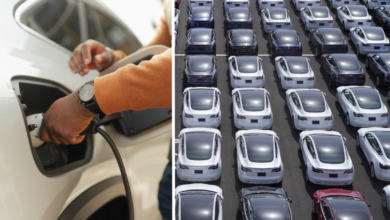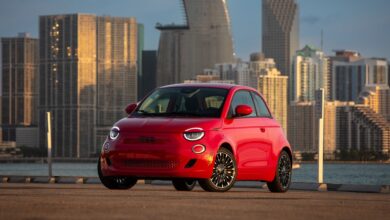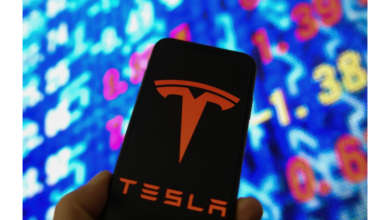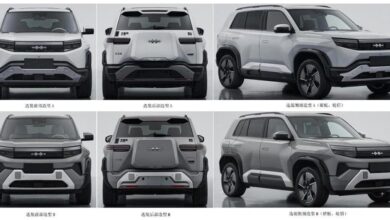EV Sales in Australia Show Slight Improvement — May Update
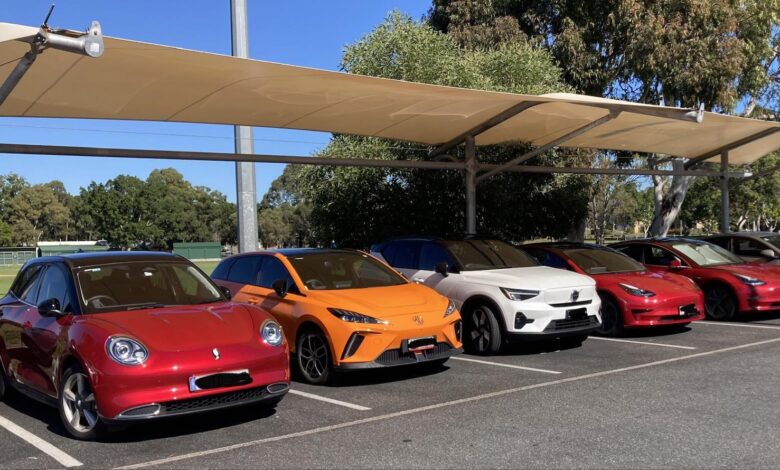
Sign up for daily news updates from CleanTechnica on email. Or follow us on Google News!
EV sales in Australia showed a slight improvement in May. Although, the battery electric vehicle (BEV) penetration of the market remained steady at approximately 8% in May in a rising market for all vehicles. There were 8,974 BEV sales, a big improvement on April (6,194 units sold) and also greater than May 2023 (8,124 units sold). So, even though the penetration rate is static, the numbers are improving. Over 111,000 vehicles were sold in the market in total. The largest growth area was mild hybrids.
A dark horse in the current market is the number of plug-in electric vehicles (PHEVs) being made available. It used to be just the Mitsubishi Outlander PHEV, but now the Great Wall Motors Haval and Tank have PHEV versions available. There are at least 18 listed on zecar, and Car Expert tells us that many more will enter the Australian market this year. May 2024 saw a rise in PHEV sales to 1,373 sales for the month. Note that 11,212 plug-in hybrid cars were sold in all of 2023.
Although BEV cars outsell PHEVs at a rate of 8 to 1, there may be a sea change coming as buyers access a PHEV to avoid paying fringe benefits tax on their new car leases. Let’s hope that they plug them in. Experiences in other markets don’t look good in that regard. New PHEV models are expected to arrive on Australia’s shores from Audi, Citroen, BYD, Cupra, Ford, Jeep, Kia, Mazda, MG, and Volkswagen — and more.
If we add the numbers for full BEVs and potential electric drivers of PHEVs, we come to a total of 10,347, still falling shy of the peaks of February and March of this year.
Top selling BEVs in Australia in May 2024 were:
- Tesla Model 3 — 1,958 sold in May (year to date 8,823)
- Tesla Model Y — 1,609 sold in May (year to date 9,610)
- BYD Seal — 1,002 sold in May (year to date 3,306)
- BYD Atto 3 — 737 sold in May (year to date 3,366)
- MG4 — 565 sold in May (year to date 2,476)
- Volvo EX30 — 466 sold in May
- BMW i4 — 198 sold in May (year to date +768)
- Kia EV6 — 181 sold in May (year to date 902)
- BYD Dolphin — 175 sold in May (year to date 1,044)
- Mercedes Benz EQA — 172 sold in May
Comparing this to the leaderboard from April, there is very little change in the participants. Just off the top ten, it is worth mentioning the GWM ORA benefitting from a massive price cut to score 116 sales in May. I hope it will now live up to its quirky potential. The ORA is starting be seen on the roads. Two attended our monthly coffee morning yesterday and received a great deal of scrutiny, as did the BYD Seals present.
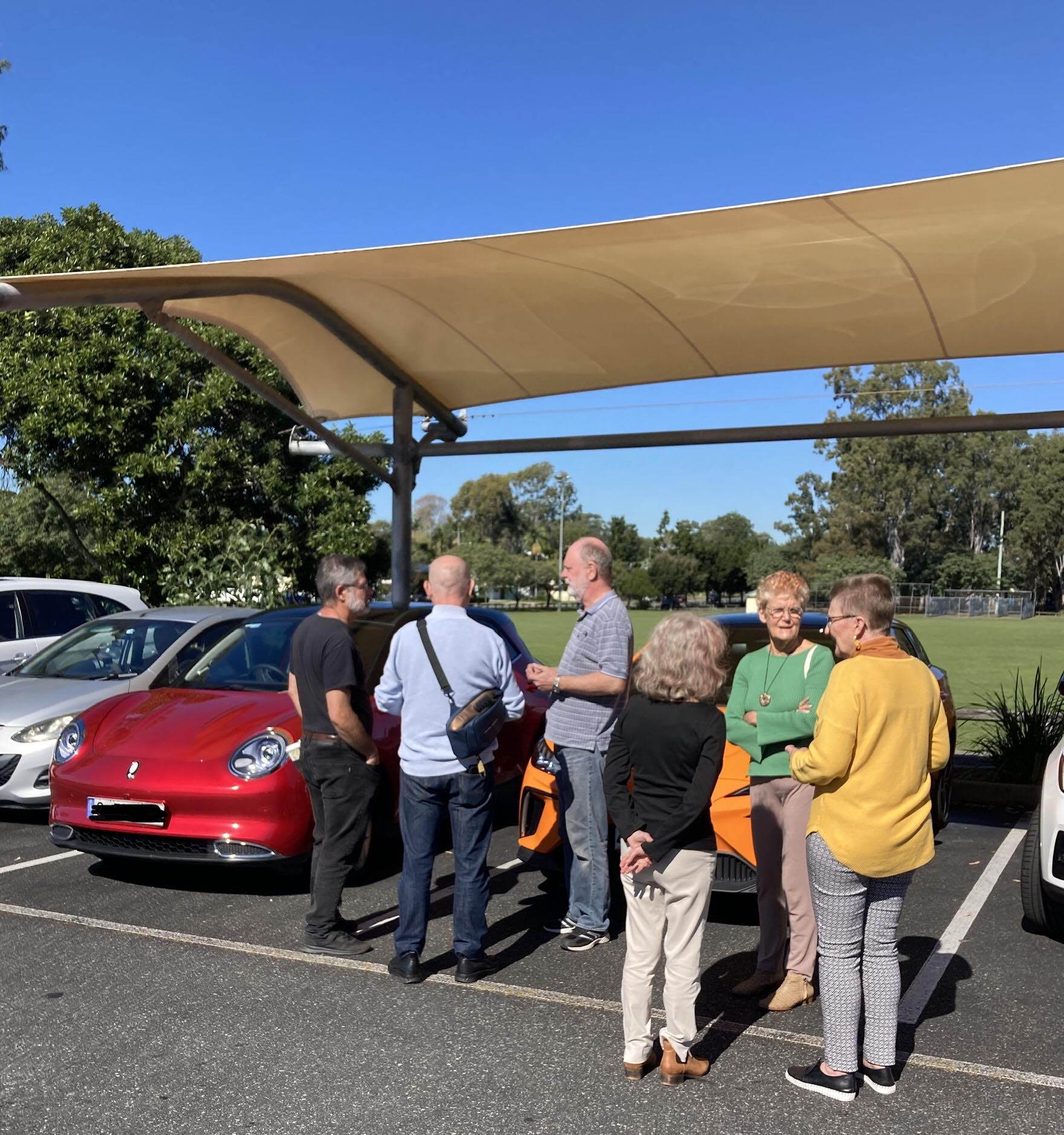
Toyota’s BZ4X came in at number 13 with a modest 73 sales. That’s 458 for the year. On our recent trip to the regions, we met with Toyota dealers in Rockhampton and Gladstone who reported interest from new car buyers, which is leading to sales of Toyota’s first electric offering. The Subaru twin (Solterra) is not doing so well, with only 45 sales. The Kia EV9 continues to fill its particular niche with 49 sales.
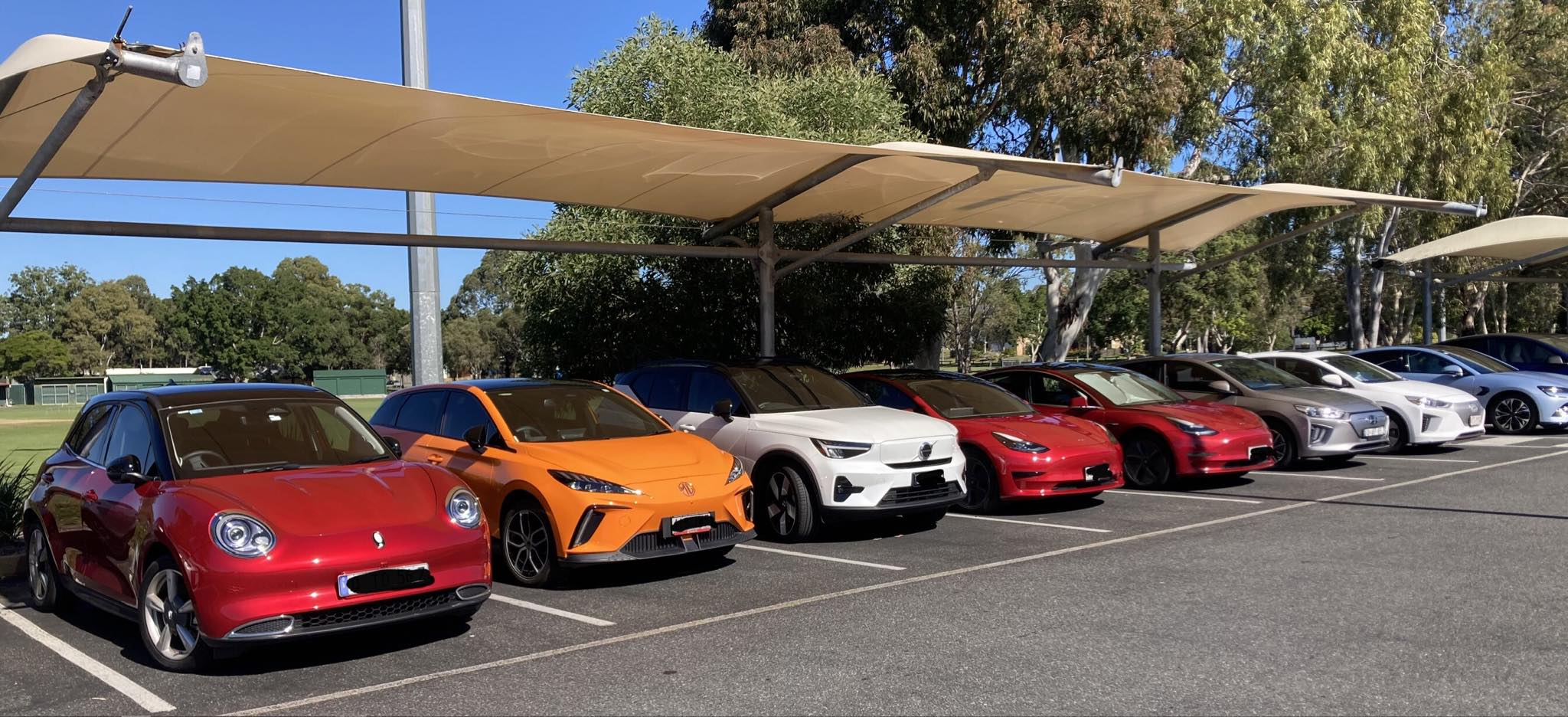
On the petrol/diesel podium, the Ford Ranger took the gold with 5,912 sales, the Toyota Hilux was in second place with 5,702 units sold, and the Toyota RAV4 was third with 5,517 sales. Tesla returned to the top ten of brands sold at number 10.
The current price war in the EV marketplace is benefitting BYD, though, with Tesla losing market share — currently down to 40%. Tesla has, in the past, regularly had 60% of the BEV market share. As BYD launches more models into the Australian market, expect Tesla’s market share to be eroded further. The market is eagerly awaiting the competitively priced Seagull (or Dolphin Mini — if things work out with BMW, which is claiming the rights to the name “Mini”). Tesla has also cut prices significantly; price parity is getting closer! Of course, now the headlines have changed from “Electric cars are too expensive!” to “Owner’s lament loss of value for trade-ins.” The sky is falling, it is raining cheap Teslas.
Leapmotor (allied with Stellantis, the parent company of Fiat-Chrysler and Peugeot-Citroen) and Xpeng are expected to launch cars into the Australian market later this year. Leapmotor has announced that it will bring in a small city car (TO3) and an SUV (C10) to bring some competition to Great Wall, MG, and BYD. They don’t mention competing with Tesla, but I am sure that they will. The Leapmotor TO3 is half the price of Australia’s cheapest EV at present, the GWM Ora, and about the same size as the Kia Picanto. However, some upgrades will be necessary to meet Australia’s stringent safety regulations. Stellantis expects to launch four more models into the market by 2027.
Arriving in the fourth quarter of 2024 will be the Xpeng G6 SUV. Xpeng will definitely be setting out to rival Tesla and has appointed True EV as its distributor. “By entering new markets strategically and offering a range of EV models tailored to local customer needs, we aim to solidify our brand position as a leading player in the smart EV sector on a global scale,” Alex Tang, XPENG’s General Manager of International Markets, said.
According to their press release: “TrueEV will debut XPENG’s G6 SUV model in Australia by Q4, 2024. Developed for global markets, the G6 is underpinned by XPENG’s evolutionary Smart Electric Platform Architecture (SEPA) 2.0 platform, which sets the foundation for future production models.” TrueEV describes its mission as: “… to empower Australians with the knowledge, resources, and support needed to confidently embrace electric mobility.” Sounds like just what we need. Hopefully I will have more information after an upcoming interview.
With infrastructure buildout continuing (chargers seem to be popping up everywhere) and frequent announcements of new cars about to be launched, Australia’s present situation could be just a pause before exponential growth kicks in. It is easy to be fooled and think that the electric vehicle revolution is progressing slowly. In Australia, this illusion can be dispelled when we realise that the majority of EVs being driven on Australian roads have only been released in the last 12–18 months. Yes, the future certainly looks bright and electric!
Have a tip for CleanTechnica? Want to advertise? Want to suggest a guest for our CleanTech Talk podcast? Contact us here.
Latest CleanTechnica.TV Videos
CleanTechnica uses affiliate links. See our policy here.

